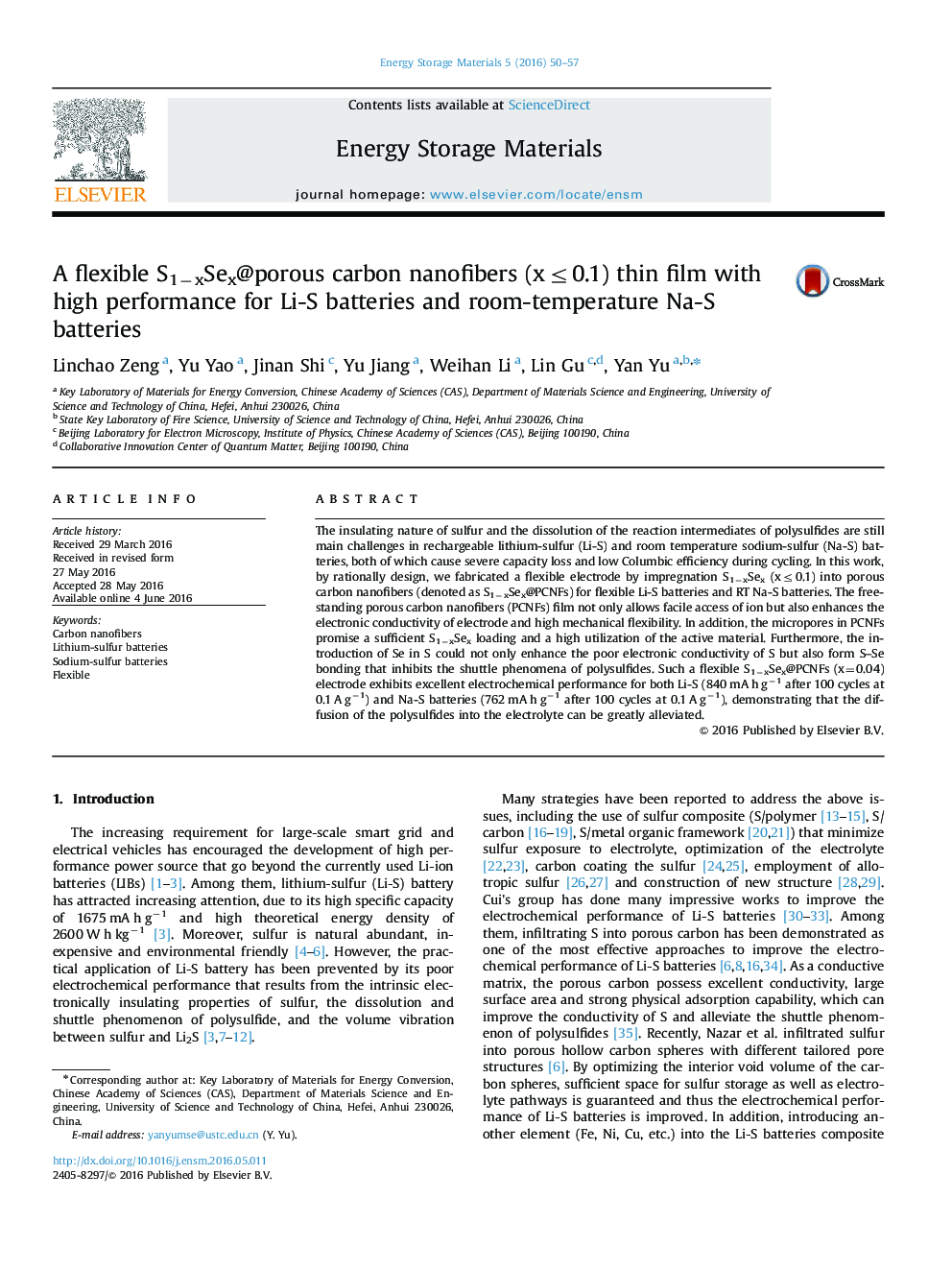| Article ID | Journal | Published Year | Pages | File Type |
|---|---|---|---|---|
| 1564559 | Energy Storage Materials | 2016 | 8 Pages |
The insulating nature of sulfur and the dissolution of the reaction intermediates of polysulfides are still main challenges in rechargeable lithium-sulfur (Li-S) and room temperature sodium-sulfur (Na-S) batteries, both of which cause severe capacity loss and low Columbic efficiency during cycling. In this work, by rationally design, we fabricated a flexible electrode by impregnation S1−xSex (x≤0.1) into porous carbon nanofibers (denoted as S1−xSex@PCNFs) for flexible Li-S batteries and RT Na-S batteries. The free-standing porous carbon nanofibers (PCNFs) film not only allows facile access of ion but also enhances the electronic conductivity of electrode and high mechanical flexibility. In addition, the micropores in PCNFs promise a sufficient S1−xSex loading and a high utilization of the active material. Furthermore, the introduction of Se in S could not only enhance the poor electronic conductivity of S but also form S–Se bonding that inhibits the shuttle phenomena of polysulfides. Such a flexible S1−xSex@PCNFs (x=0.04) electrode exhibits excellent electrochemical performance for both Li-S (840 mA h g−1 after 100 cycles at 0.1 A g−1) and Na-S batteries (762 mA h g−1 after 100 cycles at 0.1 A g−1), demonstrating that the diffusion of the polysulfides into the electrolyte can be greatly alleviated.
